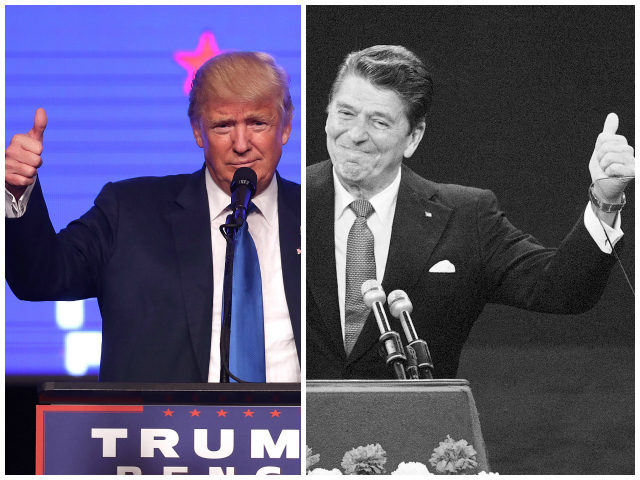Capitol Hill Republicans went into an emotional meltdown after President Trump announced plans to impose tariffs on imported steel and aluminum.
“Let’s be clear: The President is proposing a massive tax increase on American families. Protectionism is weak, not strong. You’d expect a policy this bad from a leftist administration, not a supposedly Republican one,” Sen. Ben Sasse said, according to NBC News.
But Sasse and other Republicans pouncing on the White House because of the tariffs are engaging in a bit of historic revisionism. Far from being a deviation from Republican orthodoxy, Trump’s tariffs have very clear precedents in the administrations of Ronald Reagan and George W. Bush.
President Reagan ordered measures in 1984 that the White House said would reduce steel imports and help the American steel industry. These were called “voluntary restraint agreements” with trading partners, but they were only voluntary in name. The administration said it would block access to the American market for any country that refused to agree to the voluntary restraint.
And the goal was exactly the same as Trump’s: reduce imports of steel.
“The White House expects, it said, that the agreements to be negotiated will hold foreign steel to 18 1/2 percent of the American market. So far this year imports have averaged about 25 percent of the market. In July they surged to 33 percent,” the New York Times reported.
A few years later, Reagan went much further, imposing a 100 percent tariff on some Japanese-made computers, televisions, and power tools.
The Bush administration imposed steel tariffs in 2002, keeping them in place for 21 months despite howls of protests and threats of retaliation. Yet far from initiating a trade war, the Bush tariffs were followed by years of broadening trade liberalization.
Of course, dire warnings of an impending trade war are nothing new. When Reagan imposed his 100 percent tariffs, free-traders warned that it could backfire.
The New York Times reports:
Clayton K. Yeutter, the United States trade representative, said, ”Japan has far too much at stake in this relationship to seriously entertain thoughts of retaliation,” and Japanese officials ruled out any immediate retaliation. But Robert Crandall, a trade specialist at the Brookings Institution in Washington, said ”a shot across their bow can often result in a shot in our stern.”
George H.W. Bush was far more of a doctrinaire free-trader than his predecessor or his son. Voters rejected his bid for a second term amid an economic slump.
Republicans claiming that trade barriers are an anathema to the Party’s doctrine have to contend with the history of what two out of three GOP presidents–the two that got re-elected–have done.

COMMENTS
Please let us know if you're having issues with commenting.